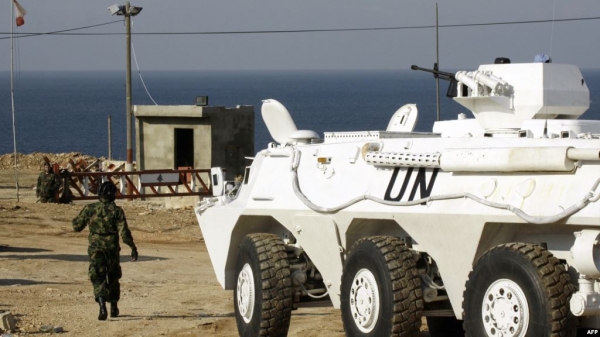LBP 40 Billion for the UNIFIL’s Properties in South Lebanon
Resolution 425
On the heels of the Israeli invasion of South Lebanon in March 1978, the UN Security Council issued Resolution No. 425, which stipulated the following:
- Withdrawal of Israeli forces from all Lebanese territory.
- Establishment of a United Nations interim force for South Lebanon for the purpose of confirming the withdrawal of Israeli forces, restoring international peace and security and assisting the Government of Lebanon in ensuring the return of its effective authority in the area. The Force would be composed of personnel drawn from Member States.
The Force consisted initially of around 6000 troops. This number decreased to 3630 due to troop reductions or to withdrawal of some contingents and further to roughly 2000 shortly before 2006.
Although the UNIFIL did not fulfill its assigned duty, the UN Security Council kept extending its mission every 6 months until it assumed a permanent status fostered by the turbulences witnessed in the South, particularly the 1982 Invasion and the July War of 2006.
Resolution 1701
Israel waged a 33-day devastating war on Lebanon in July 2006. The war ended with the issuance of Resolution No. 1701 , dated August 11, 2006 that stipulated the increase of the size of UNIFIL to a maximum of 15 000 troops. In addition to carrying out its mandate under resolutions 425 and 426, the force was assigned the following tasks:
- Observing cease-fire.
- Accompanying and supporting the Lebanese Armed Forces as they are deployed throughout the South, including along the Blue Line and during the withdrawal of Israeli troops.
- Facilitating the delivery of humanitarian assistance to civilians and the return of the homeless.
- Assisting the Lebanese Armed Forces to establish a disarmed zone between the Blue Line and the Litani River and allowing only the weapons approved by the Lebanese state.
Cost
The functions and fieldwork assigned to the UNIFIL necessitated its occupation of buildings and land and therefore the payment of rent for the use of these properties.
Under the 1995 agreement signed between the UN and the Lebanese government on December 15, the latter vowed to provide without cost to the UNIFIL and in agreement with the force commander properties for headquarters and camps necessary for the operational and administrative activities of the peacekeeping forces. The cost sustained by the Lebanese government reached as high as LBP 40 billion, distributed as follows:
- LBP 6.2 billion for the period prior to 1995.
- LBP 6.712 billion for the period between 1995 and 1999 inclusive.
- LBP 4.130 billion or an average of LBP 590 million for every year between 2000 and 2006 (before increasing the size of UNIFIL by virtue of Resolution 1701).
- LBP 3.190 billion for 2007, that is an annual cost increase of LBP 2.6 billion.
- LBP 3.990 billion for 2008 due to the occupation of new plots of land belonging to the Lebanese Central Bank.
- LBP 3.990 billion for 2009.
- LBP 3.990 billion for 2010.
- LBP 3.990 billion for 2011.
- LBP 3.990 billion for 2012.
This brings the total up to LBP 40.2 billion. But being that the Lebanese government is delaying in paying its rent arrears to landowners, the Lebanese Army was assigned to devise a list detailing the names and dues of landowners so that official rental agreements can be signed with them.








Leave A Comment